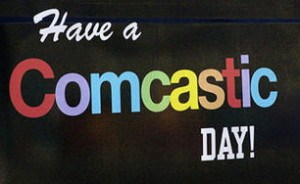 Retired employees of Embarq, an independent phone company bought by CenturyLink in 2009 for $11.6 billion dollars, are getting a Christmas “gift” they’d rather not receive: a permanently frozen pension.
Retired employees of Embarq, an independent phone company bought by CenturyLink in 2009 for $11.6 billion dollars, are getting a Christmas “gift” they’d rather not receive: a permanently frozen pension.
Following some earlier moves by other telecommunications firms, CenturyLink is now notifying former Embarq employees that it will permanently freeze benefit accruals for employees not represented by unions as of Dec. 31.
“These changes align our retirement benefits closer to those offered by our competitors, many of whom have previously effected similar changes over the past several years,” CenturyLink said in a filing with the federal government.
It estimated that the changes will save the company about $20 million during the next five years.
CenturyLink apparently had $11.6 billion to acquire Embarq, but does not have $20 million to spare to pay former employees legitimate pension benefit accruals after decades of service.
It is not the first time Embarq’s former employees have suffered from benefits downsizing. In 2008, retirees were notified their health care benefits were being canceled, the company’s non-profit matching gift program was being thrown under the bus, and life insurance benefits for those most likely to need them were being capped at $10,000.
Many retirees, already having lost their savings in the Great Recession, and have no prospects for future employment, cannot afford to replace the lost benefits. Many are well into their 70s.
A daughter of one retiree reacted to the ongoing parade of canceled benefits and broken promises to retired employees:
Last night my mother called me in tears. Not with tears of sadness but with tears of rage.
She received a letter yesterday telling her that the company that took over the company that she worked at for 25 years is stopping almost all of her retirement benefits.
Now at 70 years old this tough woman who worked almost every day of her life, never taking a dime from anyone is upset and enraged. She raised two children on her own after her divorce and at 37 years of age became one of the first female telephone lineman in Michigan (1974) later moving to and working in Florida.
She worked all those years, for the most part, to build retirement benefits that she could depend upon and that would provide the security she had been promised by the American way of life.
During her retirement years she has watched her peers turn over property and monies to their children so that they could claim poverty and collect more assistance from the government and to avoid loosing property when it comes time to move into a retirement home. She considers this cheating and never considered it.
Now, with her small 401K (that lost over 100,000 a few years ago) and social security) she makes too much for additional medical benefits that others who did not work or that collected welfare can easily get. The margin of error here? About $100 she says.
To say she is angry is an understatement. There is no way that I know of to get other persons affected by this decision to join together than to somehow get some type of exposure to what has happened. Who will fight the system for these folks who, even if they could start some type of legal action, will probably be dead before anything is decided?
Talk about disenfranchised seniors!
Not every retiree will face the prospect of seeing their benefits terminated, however. Union employees are protected from CenturyLink’s actions, as are Embarq’s former top-floor executives.
Mike Fuller, the retired chief operating officer of Embarq Corp., keeps his package worth $24 million after leaving the Overland Park company.
Fuller received $2.7 million in severance and bonuses and will get $21.4 million in stock and other benefits over the next couple of years, according to documents filed with the U.S. Securities and Exchange Commission.
Dan Hesse, former chairman and chief executive, maintains a compensation package worth $5.9 million in 2006. He received $960,482 in salary, a $1.2 million bonus, various stock awards and other benefits. He has since gone on to become CEO of Sprint-Nextel.
Thomas Gerke, Embarq’s top lawyer, received $460,558 in salary and other benefits totaling $2.9 million.
Some current CenturyLink employees are also finding their Christmas spirit challenged by news some are being laid off.
In Galesburg, Ill., over a dozen call center employees will keep their jobs through Christmas, but not long after that.
The reason for the layoffs? “The company just needs to do business better,” said Company Market Development Manager Jack Moore.
“The center’s closing is part of the company’s overall plan to improve costs and gain operational efficiencies, by consolidating centers,” Moore said. “This consolidation allows the company to streamline customer service, and capture the synergies enabled by the merger of Embarq and CenturyLink.”


 Subscribe
Subscribe






